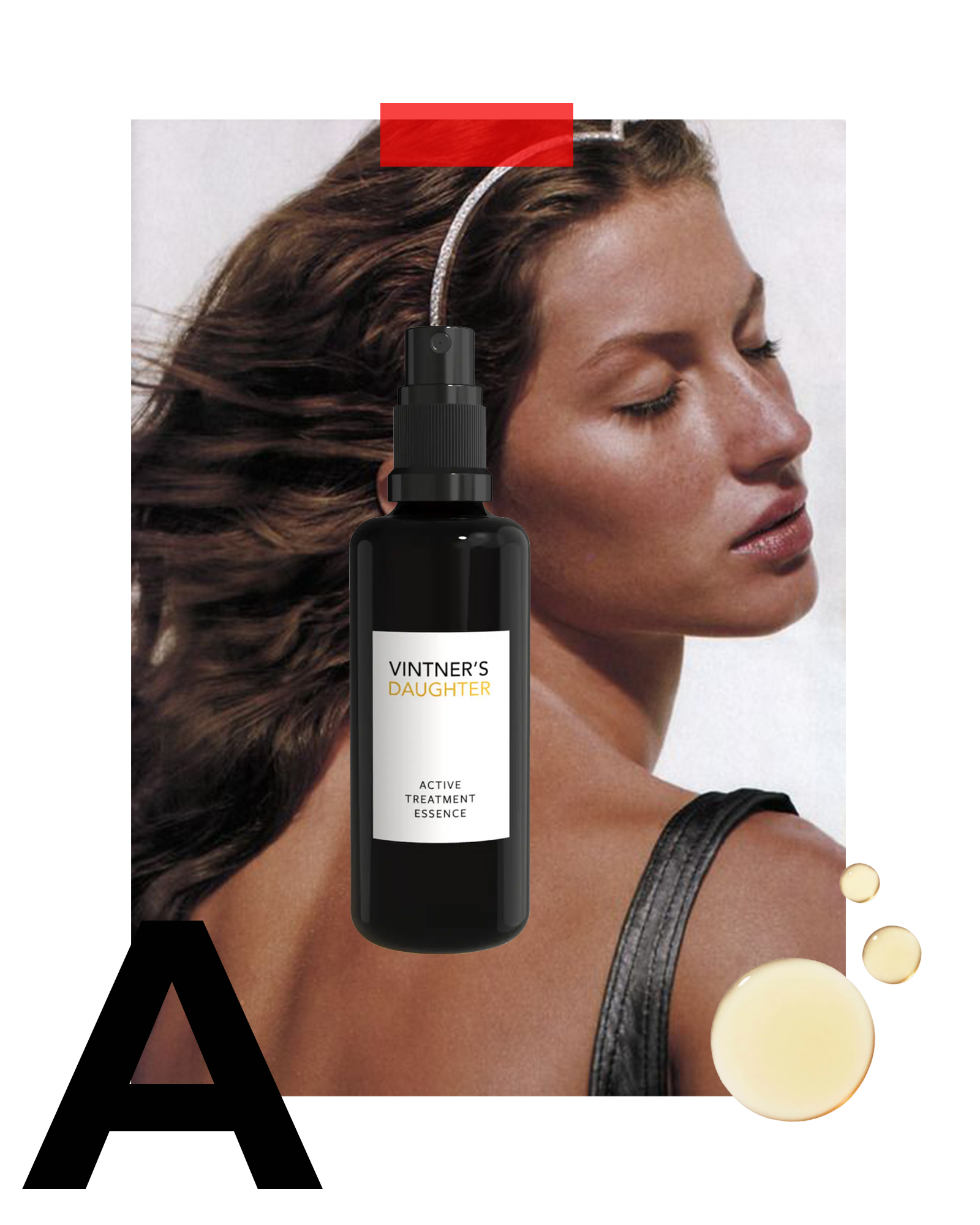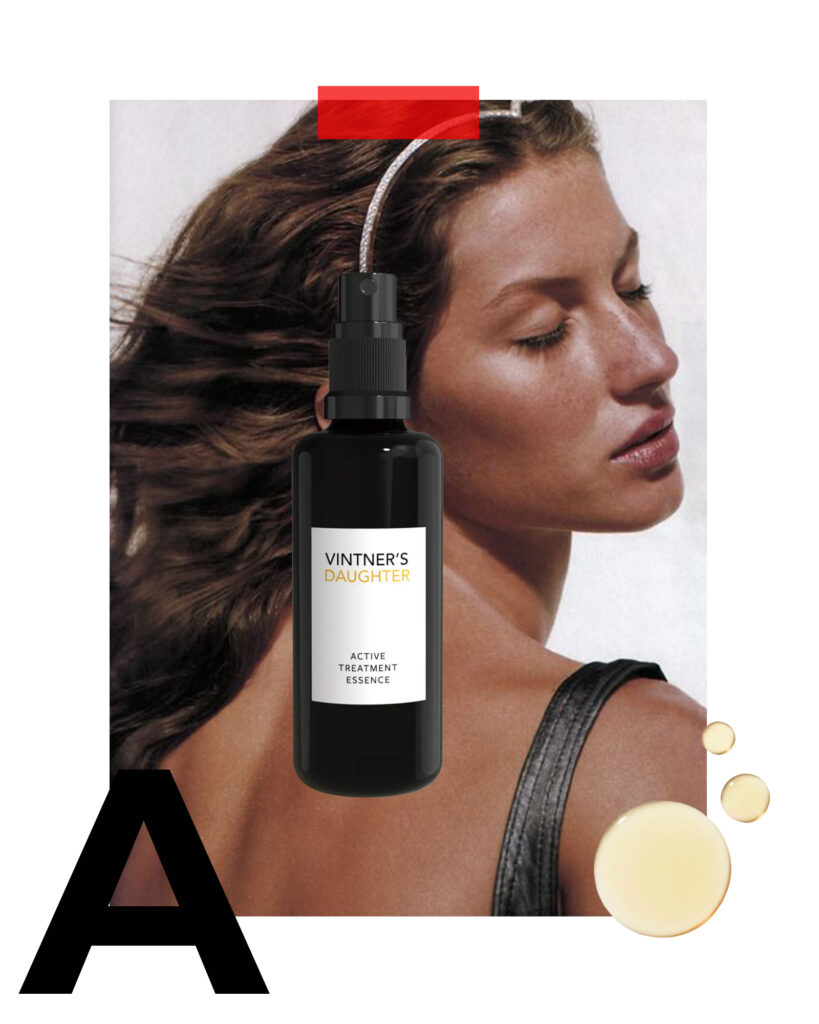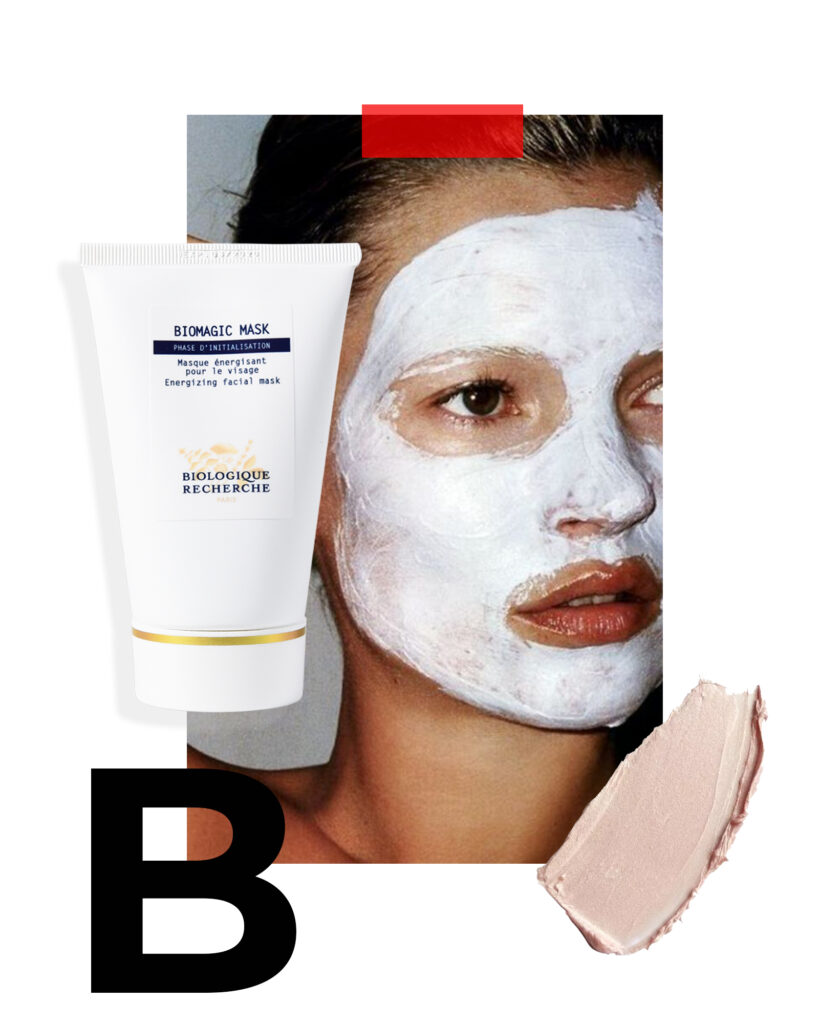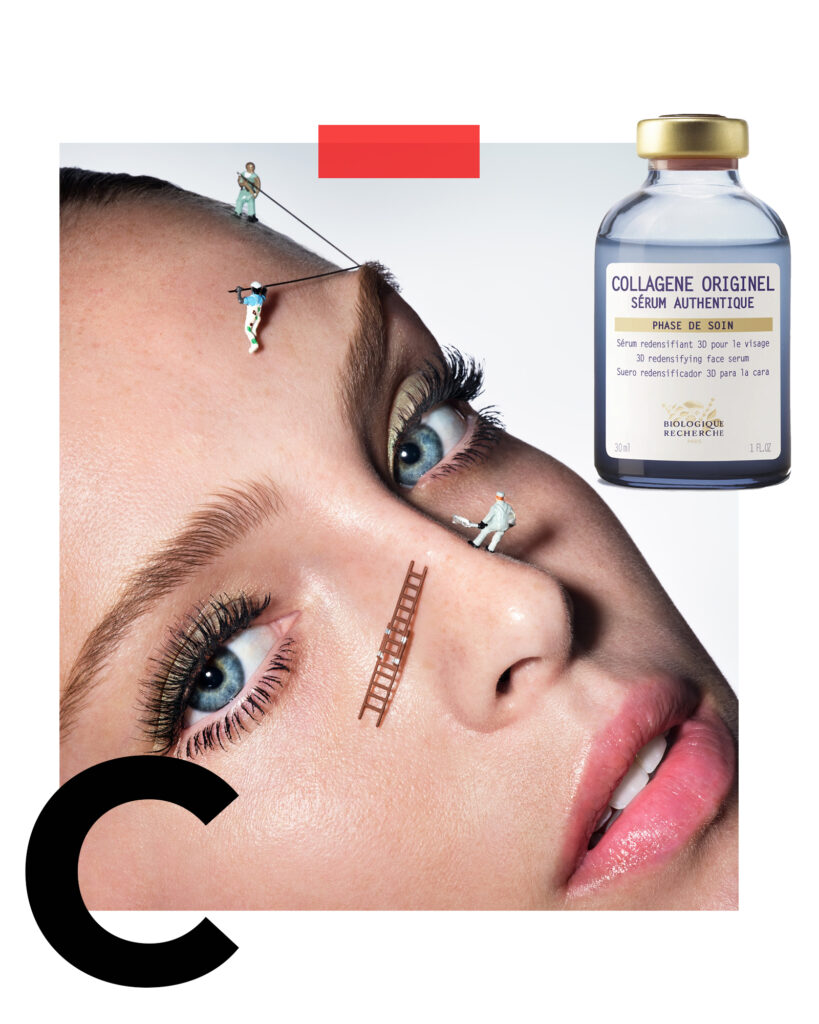Allantoin
WHAT IT DOES:
Allantoin is a soothing ingredient that protects the skin. It is extracted from the comfrey plant’s root, and is often used in waxes. Allantoin is also a keratolytic agent, or a gentle exfoliant, meaning it’s great for smoothing and buffing sensitive skin.
HOW IT WORKS:
Allantoin essentially smooths and softens the skin, and is a great all-purpose exfoliant for all skin types, especially sensitive skin.
MG SAYS:
Allantoin is especially useful in treating reactive skin and encourages cellular regeneration due to its incredible healing, hydrating and reparative properties. Allantoin is ideal for stressed, compromised or sensitive skins.
Almond Oil
WHAT IT DOES:
Almond oil is one of the best naturally-derived oils, and great for a number of purposes including to soothe inflammation, protect sensitive skin and moisturise dry skin. It is non-fragrant, meaning it’s fantastic for sensitive skin, and is derived directly from almond kernels.
HOW IT WORKS:
Thanks to a high number of fatty acids, almond oil is best for restoring moisture and elasticity to the skin, and can help counteract the effects of free radicals thanks to its high oleic acid composition. This combination allows it to both hydrate and protect the skin, making it a great all-rounder.
MG SAYS:
Mild and gentle, almond oil is perfect for those with sensitive or dry skin. Topical application of this nourishing oil will ensure your skin appears supple and hydrated.
Aloe Vera
WHAT IT DOES:
Aloe vera has been used for centuries to help heal the skin. Many will know its soothing properties as it’s long been used as a protectant following irritation — particularly after prolonged sun exposure or sun-induced burning. It helps to reduce inflammation, soothe, heal and hydrate the skin and is applied topically directly onto the skin.
HOW IT WORKS:
Taken from the aloe vera succulent, this plant-derived, gel-like substance has wonderful anti-inflammatory and antibacterial properties. It acts as a water-binding gel, drawing oxygen to the skin and helping heal dry or irritated skin. It can also help with redness, itching and wound healing — leaving a softer, calm complexion.
MG SAYS:
A true remedy for sensitive, stressed-out complexions, Aloe Vera shares the same pH as skin, making it perfect for those prone to irritation.
Alpha Lipoic Acid
WHAT IT DOES:
Alpha Lipoic Acid (ALA) is a powerful skincare ingredient and a favourite for many formulations. It is found naturally occurring in every cell of the body, and can have incredible antioxidant powers. An essential fatty acid, ALA can help minimise lines, wrinkles and pores, and is best for those wanting to combat poor skin quality, laxity and texture.
HOW IT WORKS:
Thanks to anti-inflammatory properties, Alpha Lipoic Acid is best used to smooth the texture of skin, and can help reduce signs of ageing, redness and puffiness. Its status as a network antioxidant means it can be combined with other powerful antioxidants to harness their ingredients to work harder. For this reason, it’s often found alongside Vitamin C, Vitamin E and coenzyme Q10, and can work in tandem to improve the quality of the skin.
MG SAYS:
When paired together, Alpha Lipoic Acid and Vitamin C work synergistically. Try pairing the two together by using a Vitamin C serum in the morning and a treatment or serum containing Alpha Lipoic Acid in the evening.
Apple Cider Vinegar
WHAT IT DOES:
Apple cider vinegar is derived from fermented apple juice and has been used to treat skin ailments since 400 BC. It is a potent substance containing high levels of antioxidants that promote skin healing and immunity. It is antifungal, antiviral and antibacterial.
HOW IT WORKS:
Due to its acidic nature, apple cider vinegar hosts a number of enzymes that are beneficial for skin health. These help to maintain the skin’s natural pH levels while also combating inflammation and irritation. Plus, the high tannin content has purifying and astringent properties, which makes it a wonderful chemical exfoliant.
MG SAYS:
I love apple cider vinegar – it’s a hard-working, multi-purpose substance that can be easily bought from the supermarket. My fridge is never without it.
Apple Seed Extract
WHAT IT DOES:
Apple seed extract is an intense antioxidant oil derived from the seeds of apples with a dark orange colouring. It is full of AHAs (Alpha Hydroxy Acids) meaning it’s a superlative chemical exfoliant and leaves a refreshing sensation when applied directly to skin.
HOW IT WORKS:
The naturally-occurring carbohydrates found in apple seed extract work concurrently to create an epidermal barrier, sealing in moisture and preventing further water loss, meaning skin that is dull, oily or congested will benefit most.
MG SAYS:
Apple seed extract is a perfect remedy for dull or congested skin thanks to its exfoliating properties.
Apricot Oil
WHAT IT DOES:
Apricot oil, which is extracted from apricot seeds, smooths and hydrates the skin, giving a supple texture thanks to its emollient nature.
HOW IT WORKS:
Apricot oil is rich in Vitamin E, which helps promote skin healing, and antioxidants. As an emollient, apricot oil boosts moisture by tapping into the skin’s natural lipid reserves, forming a barrier to deliver and then lock in hydration. This leads to firmer and more supple skin, leaving a glowing appearance thanks to increased hydration.
MG SAYS:
Referred to as ‘the nectar of the gods’ in Greece, apricot oil makes the skin velvety soft and is often used for massages. This lightweight oil is seamlessly absorbed by the skin and results in a natural radiance. It’s best used for those with dry skin.
Argan Oil
WHAT IT DOES:
Argan oil has been well known for its hair care benefits for some time, however this much-loved ingredient can be used on the skin, too. Sourced from Argan trees native to North Africa, Argan oil helps protect and soften the skin, providing ample hydration by delivering a cocktail of moisturising elements.
HOW IT WORKS:
Despite being an oil, Argan oil is great for those with acne as it helps the skin balance its own oil production. With Vitamin E, fatty lipids and acids, plus antioxidants, Argan oil can help fight free radicals and restore the skin’s own barrier, meaning it can help heal and protect at the same time.
MG SAYS:
Argan Oil is the ultimate multitasker! Use as a makeup primer to give your foundation a luminous glow, apply to dry, split ends to nourish hair or use on devitalised, cracked cuticles.
Avocado Oil
WHAT IT DOES:
Not just a pantry staple, avocado oil boasts an array of benefits for the complexion. This non-fragrant plant oil replenishes moisture, smooths and nourishes for supple, hydrated skin.
HOW IT WORKS:
A rich ingredient full of benefits for dry and dull skin, avocado oil is full of antioxidants, fatty acids and vitamins, including vitamins A, D and E. Great for sensitive skin thanks to its soothing antibacterial properties, avocado oil can be used on most skin types but is best suited for those with sensitive skin. It is often found combined with other ingredients in common skincare formulations, thanks to its emollient properties which make it a wonderful carrier oil.
MG SAYS:
This multi-tasking superfood imparts an abundance of benefits on skin. A cleansing product that contains avocado oil can help to remove dead skin cells and calm the appearance of inflammation of the sebaceous glands and pores, resulting in a clearer complexion.
Arbutin
WHAT IT DOES:
Arbutin helps reduce the appearance of pigmentation, as it suppresses tyrosinase which forms melanin. Extracted from the bearberry plant, Arbutin brightens, refines and clarifies the skin for an even tone.
HOW IT WORKS:
Arbutin helps lighten the skin, inhibiting the production of tyrosinase. It can help reduce the effects of pigmentation on the skin, generally lightening and brightening the skin to help combat common pigmentation concerns including melasma-induced dark spots.
MG SAYS:
Since arbutin’s active component is released slowly, it can be less irritating than other skin-lightening agents and ideal for those with sensitive skin.
Astaxanthin
WHAT IT DOES:
Astaxanthin is an aquatic carotenoid (it gives salmon its pink colouring) which can help with collagen synthesis and overall skin repair. Red in colour, Astaxanthin can help provide immune support and fight free radical damage and oxidation, making it a popular skincare ingredient.
HOW IT WORKS:
Astaxanthin can help mask or slow the effects of ageing thanks to its ability to block free radicals which damage the skin cells. It acts as a barrier between the skin and outside aggressors, such as pollution, providing potent effects on smoothing, softening and protecting the skin.
MG SAYS:
Astaxanthin is commonly referred to as “the king of the carotenoids” due to its remarkable antioxidant profile and ability to scavenge free radicals while improving collagen stores, skin elasticity and smoothness. This red-hued molecule is commonly derived from wild caught salmon, krill, trout, algae and lobster.
Aqua
WHAT IT DOES:
Water is an essential part of skincare, both for products and for internal hydration. Often the main ingredient in skin formulations, water acts as an important mixing agent.
HOW IT WORKS:
Hydrating the body, skin cells need water to function. By plumping these cells, the skin appears refreshed and radiant.
MG SAYS:
Water-based products are wonderful for adding moisture and hydration to all skin types. Acneic, hyper-sebaceous or congested skins in particular benefit from using aqua as a medium for delivering more potent vitamins, minerals and antioxidants into the skin as they do not disrupt the acid mantle and are non-comedogenic.
Azelaic acid
WHAT IT DOES:
While Azelaic acid is not an AHA or BHA, it is a wonderful, gentle exfoliant which can help unclog pores and refine the skin’s surface. Providing skin with a healthy dose of antioxidants, Azelaic acid buffs away dead skin to reveal glowing, radiant skin.
HOW IT WORKS:
Thanks to its exfoliating properties, Azelaic acid helps speed up cell turnover which in turn allows the skin to regenerate and replenish.
MG SAYS:
Azelaic acid is a powerhouse multi-tasker for the skin. It is an effective leave-on exfoliant that works to gently clean out pores as well as delivering potent antioxidant protection and effectively reduces reactivity, redness and textural irregularities.
Azulene Extract
WHAT IT DOES:
Azulene extract is both an antioxidant and anti-inflammatory product, which helps combat free radicals. Distilled from the chamomile leaf, azulene extract can shield the skin from incurring more damage, and can be a wonderful repairer.
HOW IT WORKS:
Azulene extract works to neutralise free radicals, which can cause fine lines, pigmentation and redness. By combating these free radicals at the source, azulene helps on a cellular level to restore and repair the skin from the inside out.
MG SAYS:
Azulene has an anti-inflammatory effect on the skin, preventing the skin’s immune response to aggressors or irritants. It is particularly healing for redness and swelling and offers antioxidant protection against free radical damage and oxidative stress. It is popularly used in serums and creams designed to target inflammatory acneic conditions.





